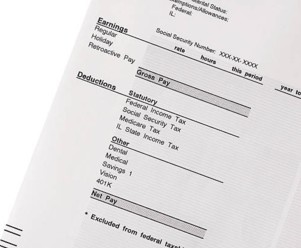The 7 Functions Of HR - Explained
By Davis Clarkson , March 12 2023

No matter where you work or what position you hold, your workplace probably has at least one thing in common with others, and that’s a Human Resource (HR) department.
You may be aware of the HR department at your place of work, but since you probably don’t interact with your HR team on a daily basis, you may not know exactly what the function of this department is.
The role of HR can be broken down into 7 different functions. These functions are something you should be familiar with as an employee so that you know how Human Resources can help you in the workplace.
This is a guide to the 7 functions of HR, including detailed explanations of each function to help you understand this area of your workplace better.
Also read: 5 Valid Reasons For Reporting A Line Manager

The 7 Functions of HR
-
Recruiting Employees
HR is involved in every employee’s journey from the beginning, starting with the hiring process. You might know that HR helps to find employees to fill roles needed within the company, but this department actually does much more than this.
Usually, it is HR’s job to identify where roles might be needed within a company and then create a job description to advertise the position. Writing a job description involves a lot of work, including clearly writing up all the requirements of the position and advertising the salary.
From there, HR is also involved in the initial application screening as well as the later interview process. Interviews might be conducted entirely by HR, and the selection process may be left in the hands of the HR department, too.
-
Training Recruits
Once recruits have been hired, HR’s job continues with onboarding and training. Most jobs require some level of training before employees can really get started, and it’s HR’s responsibility to ensure that new employees receive the proper training.
Also read: 5 Fair Reasons To Dismiss An Employee
Training doesn’t stop after a couple of weeks post-hiring. Development is an important part of the training stage as well since many employees will be looking for career progression in their new jobs. Employee retention largely depends on recruits feeling that they will be able to progress in the company and that they will receive the necessary support to do so.

-
Managing Workplace Relations
Workplace relations is one of the things HR is best known for. In order for a workplace to function successfully and feel like a safe and supportive environment, employee relations must be invested in.
Unfortunately, disputes in the workplace do sometimes happen, and when they do, it is the role of HR to mediate and help employees to come to a solution. This way, relationships can be maintained and performance won’t suffer as a result of strained relationships.
Keeping workplace relationships healthy is very important when it comes to employee retention as well as employee wellbeing. Employee mental health can easily suffer as a result of difficult relationships in the workplace, and HR is instrumental in making sure this doesn’t happen.
Also read: When Is Employee Appreciation Day?
-
Monitoring Performance
It is important to monitor employee performance consistently to make sure that work is being completed on time and to a high standard. Additionally, since performance can often be an indicator of employee wellbeing, it’s important to check in on progress and performance on a regular basis.
HR is usually responsible for this in addition to workplace supervisors. Usually, supervisors who work in close proximity to employees will keep a record of performance, and should there be any problems, they are passed over to HR.
HR can then discuss the situation with both the employee in question and the employee’s line manager to come up with a solution moving forward.
It’s important to note that performance doesn’t just include work quality, but also attitude and efficiency.
Also read: 5 Reasons You Need To Perfect A Job Description
-
Handling Payroll
HR is responsible for employee pay as well as any monetary or non-monetary benefits that come alongside the salary.
For example, HR employees are trusted to do the necessary calculations to work out each employee’s tax, figure out pay for sick leave and holidays, and ensure that employees who are entitled to benefits receive them.
-
General Administration
A lot of administration and filing goes into keeping a company running smoothly, and these tasks are largely the job of HR.
Data involved in HR admin might include employees’ personal details such as address, date of birth and bank details, and records of an employee’s time at the company will also need to be organized and filed by HR. This could involve records of meetings with HR, progress reports, and more.
This is an overlooked aspect of HR’s job, but it’s actually really important because companies would not be able to function successfully without a department keeping track of all necessary administration.
Also read: Full Time Vs Part Time Hours

-
Legal Aspects
All companies need to make sure that they are complying with employment law in order to not get sued or end up with a damaged reputation.
HR employees are required to keep themselves informed about recent developments in employment law and make sure that any policies or contracts within the workplace are in line with these. If not, HR will be responsible for making the necessary changes.
HR’s involvement in employee relations may also veer into legal territory if disputes involve certain forms of harassment or if there are serious issues with the payroll system, which just goes to show how important the work of your average HR department actually is.
Final Thoughts
HR has a lot of different responsibilities, but the 7 main functions of HR include recruitment, training, workplace relations, performance monitoring, administration, payroll, and keeping the company in line with employment law.
Ultimately, the HR department in any workplace is responsible for facilitating the smooth and ethical daily running of the company.
If you’re involved in HR at your place of work, we hope that this article has helped to summarize your role in a concise way. If you’re employed in a different department, we hope that the guide has helped you to understand and appreciate the role of HR better than you did before.
Get started using our paystub creator today which can create high quality pay stubs in a matter of seconds!
Similar Articles
We’ve helped numerous individuals and businesses create professional documents! Create yours today!










